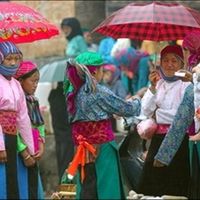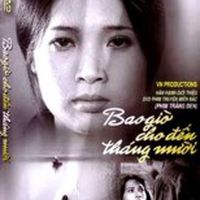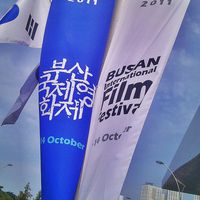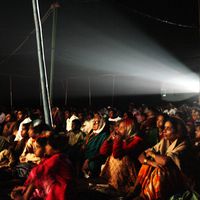Annu-Ru Aboro - Peoples' Film Festival
Ânûû-rû âboro , or ‘film’ in the Paicî language, literally means “a man’sshadow”.
Human dignity is often associated with struggles for emancipation and freedom. Since the signing of the Nouméa Accord in May 1998, the Kanak People and the citizens of New Caledonia have been engaged in a decolonisation process, which will lead to full sovereignty if it is so decided. This aspiration for self-respect is shared by other peoples of the world. The anûû-rû âboro festival seeks to echo the commotion in the world and the voices of its peoples by promoting documentary film. Documentaries can be a common language spoken by all the peoples of the world.
Anûû-rû âboro screens films from Africa, Asia, the Americas, Europe and naturally the Pacific. It will address the eyes as well as the ears; it will be an opportunity to talk to one another and to think about the use of technology and the issues and responsibilities involved in filming. Film is as much about ethics as it is about aesthetics.
The anûû-rû âboro festival takes place in Pwêêdi Wiimîâ (Poindimié) and in the tribus (Kanak villages) of the Northern Province of New Caledonia, where a majority of the population is pro-Independence. Colonisation has focussed most economic activities in the south, mainly in Nouméa. The Northern Province has no cinema. Films are shown in the open air from a mobile ‘bush’ cinema (Ciné-brousse). To stage a documentary film festival in a province with no cinema is more than a paradox; it expresses a determination to overcome the imbalances inherited from colonisation.
Anûû-rû âboro wants to offer its guests and participants an original backdrop for screening films, out of doors, in the Kanak village setting, sitting on a mat among local communities. Guests and participants will be able to enjoy meals and accommodation with villagers, in the Kanak tradition of hospitality, with respect and humility, and engage in discussion and exchange after film screenings in a fraternal atmosphere.




